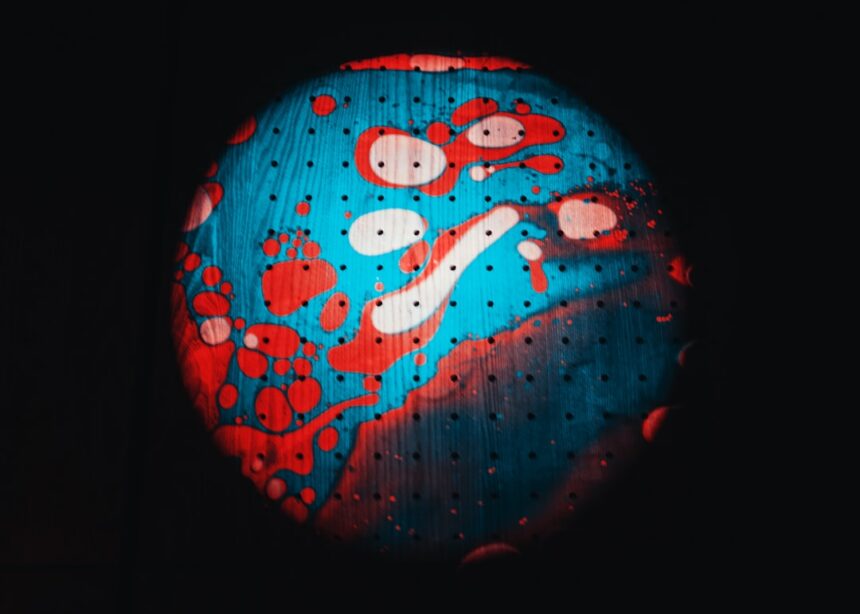In the realm of psychology, projection is a fascinating and complex concept that plays a significant role in how individuals perceive themselves and others. At its core, projection involves attributing one’s own thoughts, feelings, or motives to another person. This defense mechanism can serve as a shield against uncomfortable emotions, allowing you to distance yourself from aspects of your personality that you may find difficult to accept.
Understanding projection is essential for anyone interested in personal development, as it can illuminate the ways in which you interact with the world around you. As you delve deeper into the intricacies of projection, you may find that it is not merely a psychological quirk but a fundamental aspect of human behavior. It can manifest in various forms, from subtle insinuations to overt accusations.
By recognizing how projection operates within your own psyche, you can begin to unravel the layers of your emotional responses and gain insight into your motivations. This journey of self-discovery can lead to greater emotional intelligence and healthier relationships.
Key Takeaways
- Projection is a psychological defense mechanism where individuals attribute their own unacceptable thoughts, feelings, or motives to others.
- Understanding the psychological processes of projection involves recognizing how individuals disown their own unconscious impulses and instead see them in others.
- Projection manifests in everyday life through blaming others, feeling overly suspicious, or having strong emotional reactions to others’ behavior.
- Projection can impact relationships and interpersonal dynamics by creating conflict, misunderstanding, and a lack of self-awareness.
- Recognizing and addressing projection in therapy is crucial for personal growth and healing, as it allows individuals to gain insight into their own unconscious processes and take responsibility for their own feelings and behaviors.
The Concept of Unconscious Defense Mechanisms
Unconscious defense mechanisms are psychological strategies that your mind employs to protect itself from anxiety and emotional pain. These mechanisms operate below the level of conscious awareness, often without your explicit recognition. They serve as a buffer against feelings that may be too overwhelming to confront directly.
Projection is one such defense mechanism, alongside others like repression, denial, and rationalization. Each of these mechanisms plays a unique role in shaping your emotional landscape. When you engage in projection, you may not even realize that you are doing so.
Instead of acknowledging your own insecurities or negative traits, you might find yourself attributing them to someone else. This can create a distorted view of reality, where you perceive others as embodying the very qualities you struggle to accept in yourself. By understanding these unconscious processes, you can begin to identify patterns in your behavior and reactions, paving the way for deeper self-awareness and personal growth.
The Role of Projection in Psychological Defense Mechanisms

Projection serves a vital function within the broader framework of psychological defense mechanisms. It acts as a protective barrier, allowing you to deflect uncomfortable feelings and maintain a sense of self-preservation. When faced with emotions such as guilt, shame, or fear, projecting these feelings onto others can provide temporary relief from the internal conflict you experience.
However, while this mechanism may offer short-term comfort, it can also lead to long-term complications in your relationships and self-perception. Understanding the role of projection in your life can help you recognize when it is at play. For instance, if you find yourself frequently criticizing others for traits that you possess, it may be an indication that you are projecting your own insecurities onto them.
By acknowledging this behavior, you can begin to confront the underlying issues that drive it. This process not only fosters personal growth but also enhances your ability to empathize with others, as you become more aware of the shared human experience of struggling with difficult emotions.
Understanding the Psychological Processes of Projection
| Psychological Process | Definition |
|---|---|
| Projection | Attributing one’s own thoughts, feelings, or motives to another person |
| Examples | Blaming others for one’s own mistakes, assuming others have the same beliefs as oneself |
| Impact | Can lead to misunderstandings, conflicts, and difficulties in relationships |
| Therapeutic Approaches | Psychodynamic therapy, cognitive-behavioral therapy, mindfulness practices |
To fully grasp the psychological processes behind projection, it is essential to explore how it operates within your mind. When you experience an emotion or thought that feels threatening or unacceptable, your subconscious may instinctively push it away by attributing it to someone else. This process often occurs automatically and without conscious thought, making it challenging to recognize when projection is influencing your perceptions.
The psychological underpinnings of projection are rooted in the desire for self-preservation. By externalizing negative feelings or traits, you create a sense of distance between yourself and those uncomfortable aspects of your identity. This can provide a temporary sense of relief but often leads to misunderstandings and conflicts in your interactions with others.
As you become more attuned to these processes, you can start to dismantle the barriers that projection creates, allowing for more authentic connections with yourself and those around you.
How Projection Manifests in Everyday Life
Projection can manifest in various ways throughout your daily life, often in subtle yet impactful manners. For example, if you are feeling insecure about your abilities at work, you might find yourself criticizing a colleague for their perceived shortcomings instead of addressing your own feelings of inadequacy. This behavior not only distorts your perception of others but also hinders your personal growth by preventing you from confronting the root causes of your insecurities.
In social situations, projection can lead to misunderstandings and conflicts with friends or family members. If you are struggling with feelings of jealousy or resentment, you might project those emotions onto someone else by accusing them of being envious or competitive. This not only creates tension in your relationships but also diverts attention away from the real issues at hand.
By recognizing these patterns in your everyday interactions, you can begin to break the cycle of projection and foster healthier communication with those around you.
The Impact of Projection on Relationships and Interpersonal Dynamics

The impact of projection on relationships cannot be overstated. When you project your feelings onto others, it creates a distorted lens through which you view your interactions. This can lead to misunderstandings, resentment, and even conflict within your relationships.
This miscommunication can erode trust and intimacy over time. Moreover, projection can create a cycle of blame and defensiveness in relationships.
When one person projects their insecurities onto another, it often prompts a defensive reaction from the recipient. This back-and-forth dynamic can escalate tensions and create an environment where open communication becomes increasingly difficult. By recognizing how projection influences your relationships, you can take proactive steps to address these patterns and cultivate healthier dynamics built on understanding and empathy.
Recognizing and Addressing Projection in Therapy
In therapeutic settings, recognizing and addressing projection is crucial for personal growth and healing. A skilled therapist can help you identify instances where projection may be influencing your thoughts and behaviors. Through guided exploration and reflection, you can begin to uncover the underlying emotions that drive this defense mechanism.
This process often involves examining past experiences and beliefs that contribute to your tendency to project. Addressing projection in therapy requires a willingness to confront uncomfortable truths about yourself. It may involve exploring feelings of shame or inadequacy that you have long avoided.
However, this journey can lead to profound insights and breakthroughs in self-awareness. As you learn to recognize when projection is at play, you can develop healthier coping strategies that promote emotional resilience and foster more authentic connections with others.
The Connection Between Projection and Self-Awareness
The connection between projection and self-awareness is a vital aspect of personal development. When you become aware of how projection operates within your psyche, you gain valuable insights into your emotional landscape. This heightened self-awareness allows you to recognize patterns in your thoughts and behaviors that may have previously gone unnoticed.
As a result, you can begin to take ownership of your feelings rather than deflecting them onto others. Cultivating self-awareness also empowers you to respond more thoughtfully in interpersonal situations. Instead of reacting defensively or projecting your insecurities onto others, you can approach interactions with greater empathy and understanding.
This shift not only enhances your relationships but also fosters a deeper connection with yourself as you learn to embrace all aspects of your identity—both positive and negative.
Exploring the Origins of Projection in Childhood Experiences
To fully understand projection, it is essential to explore its origins in childhood experiences. Many defense mechanisms develop as coping strategies during formative years when individuals are still learning how to navigate complex emotions and social dynamics. If you experienced criticism or rejection as a child, for example, you may have learned to project those feelings onto others as a way to protect yourself from further pain.
Childhood experiences shape the lens through which you view the world and interact with others. By examining these early influences, you can gain insight into why certain patterns of projection may have emerged in your life. This exploration can be both enlightening and healing, as it allows you to reframe past experiences and develop healthier coping mechanisms moving forward.
The Intersection of Projection and Other Defense Mechanisms
Projection does not exist in isolation; it often intersects with other defense mechanisms that shape your emotional responses. For instance, denial may accompany projection when you refuse to acknowledge certain feelings or traits within yourself while simultaneously attributing them to others. Similarly, rationalization may come into play as you create justifications for projecting negative emotions onto someone else.
Understanding how projection interacts with other defense mechanisms can provide a more comprehensive view of your psychological landscape. By recognizing these interconnected patterns, you can begin to unravel the complexities of your emotional responses and develop more effective strategies for coping with difficult feelings.
Navigating Projection for Personal Growth and Healing
Navigating projection is an essential step toward personal growth and healing. By recognizing how this defense mechanism operates within your life, you can begin to dismantle the barriers it creates between yourself and others. This journey requires courage and vulnerability as you confront uncomfortable truths about yourself and your emotional landscape.
As you cultivate greater self-awareness and understanding of projection, you open the door to deeper connections with those around you. Embracing all aspects of your identity—both light and shadow—allows for authentic relationships built on empathy and compassion. Ultimately, navigating projection is not just about overcoming a psychological hurdle; it is about embarking on a transformative journey toward self-acceptance and emotional resilience that enriches every facet of your life.
Understanding projection in psychology can be quite enlightening, as it delves into how individuals may unconsciously attribute their own unwanted feelings or thoughts onto others. This defense mechanism can often lead to misunderstandings and conflicts in interpersonal relationships. For those interested in exploring this concept further, a related article on the topic can be found on Unplugged Psychology’s website. You can read more about it by visiting their sample page, which provides insights and resources on various psychological phenomena, including projection.
WATCH THIS! 🧠 The 11 Manipulation Tactics That Trap Smart People
FAQs
What is projection in psychology?
Projection in psychology refers to a defense mechanism where individuals attribute their own undesirable thoughts, feelings, or traits onto others. This can involve projecting positive or negative qualities onto others in order to avoid dealing with them in oneself.
How does projection work in the mind?
Projection works in the mind by allowing individuals to disown or externalize their own unacceptable feelings or characteristics, attributing them to others instead. This can provide a sense of relief or avoidance of personal responsibility for these feelings or traits.
What are some examples of projection in psychology?
Examples of projection in psychology include a person who is dishonest accusing others of being untrustworthy, or someone who is insecure projecting their insecurities onto others by constantly criticizing them for being insecure.
What are the effects of projection on relationships?
Projection can have negative effects on relationships, as it can lead to misunderstandings, conflict, and a lack of personal accountability. It can also create a barrier to genuine communication and understanding between individuals.
How can projection be addressed in therapy?
In therapy, projection can be addressed by helping individuals become aware of their own projections and take responsibility for their own thoughts and feelings. This may involve exploring underlying insecurities, fears, or unresolved issues that contribute to the need to project onto others.




